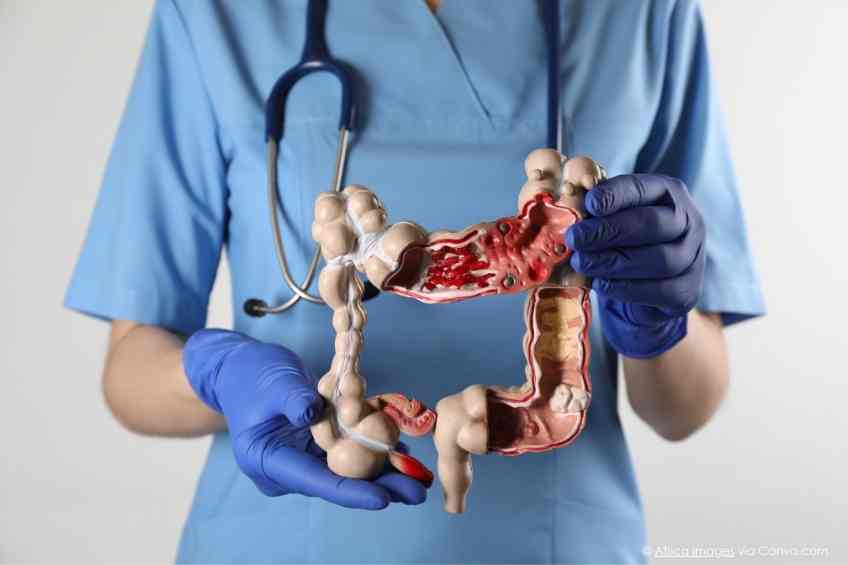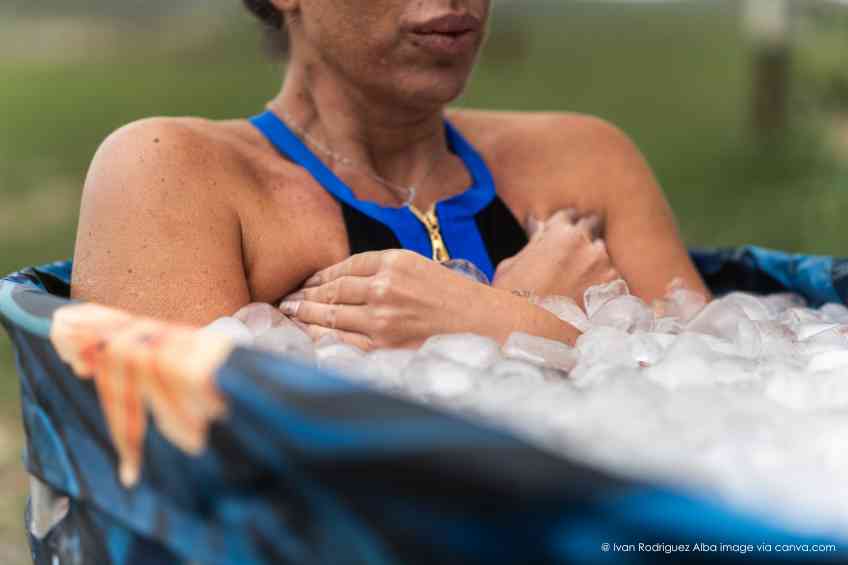Colorectal cancer is not a topic a lot of people want to think about or deal with. Unfortunately, ignoring it is a recipe for personal disaster. It is the second-leading cause of cancer-related deaths among men and women. It affects more than one million Americans and claims tens of thousands of deaths each year. The really sad part of this depressing story is that so much of this suffering can be easily avoided. Michael Sapienza, CEO of the Colorectal Cancer Alliance, is on a mission to change all this. He recently spoke with WellWell to explain how and what everyone needs to do to face up to this disease and beat it.
Can you tell us a little bit about the Colorectal Cancer Alliance? What is the Alliance’s mission?
This is our 25th anniversary. The Colorectal Cancer Alliance is the largest advocacy nonprofit organization in the world. Our vision is to end colorectal cancer in our lifetime. We concentrate on spreading awareness to make sure that people know about colorectal cancer and that it is a preventable cancer. We do these large video PSAs to get the word out. We’ve done them with Ryan Reynolds, Dak Prescott and Terry Crew. We also do screening navigation across the country to make sure that people know about screening and that they get screened. We also have the largest patient support program in the country. So, if unfortunately, one of the 150,000 people in the United States who are diagnosed with Colorectal Cancer every year needs support, whether that’s psychosocial support, financial support or information about their actual disease, their tumor or surgery, we have live navigators that support those individuals. And then we have a huge research program called Project Cure CRC where we will invest about $100 million in cutting-edge research over the next two years.
How did you get involved?
My story is such that my mom unfortunately died of colon cancer on Mother’s Day in 2009. I was a professional musician. I was a classical trumpet player performing all over the world and I found out probably in 2006 a couple of days after she was diagnosed. I was playing with Yo-Yo Ma at the time. My parents called me. They said we’d hit a bump in the road. I, of course, looked up the statistics for colorectal cancer and they were not very good. She passed away in 2009 and our family was like we’ve got to do something about this. We’re seeing ads on TV and on the radio for breast cancer walks in March, even though March was Colon Cancer Awareness Month. And so, our family started a foundation right after she died. It was not the Colon Cancer Alliance. We grew very quickly and in 2016 we decided to merge to help more people making us a $6 million organization. And this year in 2024, we are a $50 million organization. We are proud of what we’ve been able to do. But we still have a lot of work to do to end this disease.
That’s amazing. How many people are affected by colorectal cancer in the U.S.?
It is the second leading cause of cancer-related deaths for both men and women combined. Most people don’t know that the first is lung cancer. There are about 1.5 million Americans right now living with the disease. There will be about 145,000 new cases in 2024. And about 50,000 people will die from the disease this year.
Is this number rising, stable or is it lowering? Where are we in the battle?
My mom was 56 when she was diagnosed, and she had never been screened. I took over her small business when she had passed away and on the right-hand side of her drawer was a prescription for a colonoscopy exam that was over three years old and two fit tests, which is the at-home test that she had never done. If you think about it, the problem is it’s just that people aren’t getting screened. If you look at people over 50, we are seeing a decrease in mortality in incidents. But that is mainly because people 60 and older are getting either their colonoscopy, their Cologuard or their fit tests. But unfortunately, right now, the number one cancer killer under 50 for men is colon cancer and the number 2 cancer killer for women under 50 is colon cancer. There’s been a huge rise in the number of people who are young getting this disease. The screening rate for breast cancer overall is 80 percent and only about 63 percent to 65 percent of people get screened for colorectal cancer. And when you look at this younger group and when I say younger, I’m talking even 45 to 56, it’s about 45 percent of those people, and that’s nowhere near enough. And that’s why we’re still seeing this unfortunate rise in young-onset colorectal cancer.
Why are the screening rates so low? Is it the process of going through a colonoscopy or using the at-home kits?
I think that there are multiple reasons. I do think that fear is one of those that don’t want something stuck where the sun don’t shine. Like you said, I think there is a stigma. For a colonoscopy, there are certain people who don’t want to have to take off work to do the prep and then the next day for the exam. And if you’re a single mom, a single dad or even a two-income family that’s not making a lot of money, that is a hard thing to do. And so, unless you’re super proactive about your health, that is a big barrier. And then, as well, if you live in a rural area where it’s about 100 miles to the closest endoscopy center, that’s also a barrier. And then if you think about the at-home test, Cologuard, which is shipped to your house, you can do it there. But there is a little bit of an ick factor for some people because of the stool. I could talk all day about the things that are not great about all of these tests. But my mom died and the only reason why my mom died is because she did not do it.
The Cologuard test is way more sensitive and specific for finding precancerous adenomas. If you’re part of Kaiser or a bigger health system, they have the ability to make sure you do those tests every year. What’s important for people to know is if you’re somebody like me who has a family history of colon cancer, you must get a colonoscopy. You are not recommended for any of those at-home tests. If you don’t have a family history, you certainly can be a Cologuard subject. Cologuard is recommended every three years. If the Cologuard test comes back positive, you then must get a colonoscopy. The fit test should be done every year and again, if it’s positive, you must go get a colonoscopy.
They must have made a great leap in diagnostic progress in terms of colon and rectal cancer.
Yes, but the thing I think about is everybody uses the bathroom. And so Cologuard has made it so that it’s easy. You just put it on the toilet, close the thing up and send it back. And again, it’s easier if you were at average risk to get a Cologuard, just they send it to your house. You don’t have to take off time from work. Yeah. It’s just really important though that if you are at high risk, meaning you have a family history, that you absolutely get a colonoscopy or if that Cologuard test comes back positive, you got to get that colonoscopy.
The way that colorectal cancer is formed is it starts as these little, small polyps. Imagine if it’s like a mole on your skin. When you get a mole on your skin, the doctor during that skin check may take it out right then and there to prevent it from turning into full-on skin cancer. Well, when you get a colonoscopy, they go in there and they can clip that polyp out right then and there, which is what prevents the cancer from forming. So, it saves your life. It is a preventable cancer.
What’s the difference between colon and rectal cancers? Are they different? Is one an outgrowth of the other?
If you think about your colon, it’s like a big question mark inside your body. The colon is one large section, and the rectum is the bottom section. They are the same disease but treated differently. So, if you look at it under the microscope, most of the time the variations in the mutations are the same and that’s why they call it the same disease. But the treatment is different for the two areas. Let’s say you have colon cancer in the top part of the question mark; you’re going to do a resection of your colon. They’re going to take that little tumor out. They’re going to reattach it. If it’s in your rectum, they may do radiation first. They may do chemo first. They may have surgery first and oftentimes there are other complications based on the place of where the tumor is. So, we call it colorectal cancer because under the microscope it is very similar. Your colon and your rectum are different organs themselves and serve different purposes.
You mentioned that colorectal cancer is the leading cause of death in men under 50. Are there ethnic groups that are more susceptible to these cancers?
Polyps happen as we get older. Whether it’s skin polyps or other types of polyps. And age is your biggest risk factor. But there are other things that we call modifiable risk factors. So, what can I do to prevent it? You can exercise and adopt a diet high in fiber and a diet low in red and processed meats. It doesn’t mean any red or processed meats; it just means it’s a modifiable factor that can help. Smoking obviously increases your risk significantly. To recap, the main modifiable factors are exercise, diet, high in fiber, vegetables, fruits, low in red processed meats and no smoking. So those are things for anybody at any age that are going to help lower your risk.
The other things that I would say in terms of demographics. African Americans have a 20 percent higher incidence rate and a 35 percent higher mortality rate. But that is not inherently biological. That has nothing to do with them being African Americans. It has to do with other factors, whether that is socioeconomic, whether that’s racism and healthcare. The fact that they may not get their tests in at the right time or get the right quality of care. African American men have the lowest screening rate of all individuals in this country. It doesn’t matter who you are, even if it’s somewhere where the sun don’t shine or if you’re at average risk. Again, take those tests.
I would also say there are two other high-risk groups. And it’s not because they’re inherently at risk. It’s because of what I said earlier. They live in more remote areas where they’re 100 miles from a place where they can get a colonoscopy. And that’s again where I say get that Cologuard, get that fit test, as long as you are at average risk. And then the third group is that group that I said earlier, people between 45 and their mid-50s. If you think about those people, they may have kids in high school or college. They’re in the prime of their life from a professional perspective. And who’s got time for that? The mindset we see is I’m fine, I’m invincible, and whatnot.
Are there genetic causes that may lead to putting somebody at higher risk?
There are three types of cancer that normally people get. One is just sporadic no matter what you do or what happens, you just get it. You have a mutation of a cell, and you get cancer. There’s not much you can do about it. The 2nd is familial cancer. If I were to get Colon Cancer, it would be called familial because I don’t have a cell or a genetic mutation that was passed on from my mom to me. The third is the hereditary or genetic one, which is what my mom had or was born with a genetic mutation that predisposed her to colon cancer or other cancers. Everybody’s probably heard of Bracca Gene because Angelina Jolie made it super famous. but unfortunately, more people have what we call Lynch Syndrome, which is the colorectal cancer hereditary cancer. It’s about 1 in 270 people in this country have Lynch Syndrome, which, predisposes you or puts you at higher risk for colorectal cancer, endometrial cancer, ovarian cancer, breast cancer, skin cancer, pancreatic cancer, a bunch of them. and so about 10 percent of people who get colorectal cancer have either Lynch Syndrome or a variation of other types of hereditary cancer. If you’re worried about that, you should go to ccalliance.org. We have a family history quiz on our site that will ask you a bunch of questions. You look at your grandparents, parents and siblings. And there are multiple cancers that people have died from. You should talk to a genetic counselor or talk to your healthcare provider if you have a potential hereditary risk.
Are there any symptoms that you would experience that might indicate you have a problem leading towards colon or rectal cancer?
Sometimes yes, sometimes no. And that’s the hard part about it. You don’t always exhibit symptoms. But if you do, look out for unexpected weight loss, changes in your bowel habits, blood in your stool-especially dark blood and night sweats. The number one thing I’m going to say is to get screened because there are a lot of people who don’t have those symptoms. It’s very similar to pancreatic cancer.
How much greater chance do you have of surviving colorectal cancer if you’re screened early? Does it cut the risk of fatality?
If you get Stage One disease, you have a cure rate of about 98 percent. Stage Two, and I’m guessing here without looking exactly, but it’s still a very high cure rate. Depending upon where you are at in Stage Three, you still have a very high probability of being cured of the disease. It’s once you get into late Stage Three and metastatic or Stage Four where some people survive but not very many people. If you look at the five-year metastatic survival rate for breast cancer, it is about 35 percent of patients live five years or longer when they’re diagnosed with Stage Four or metastatic. Only 13 percent of colorectal cancer patients who are in Stage Four live five years or longer. If you get screened, the sooner you get it and the sooner they find the polyps, the better chance you have of survival by a significant margin.
What are the treatments and have they become more effective?
Last year the alliance started this program called Project Cure CRC and the reason why we did it is because there is just not enough philanthropic funding or even government funding for this disease. Even though we’re the second leading cause of cancer-related deaths in men and women combined, we’re the second lowest-funded cancer for mortality in the United States, which makes no sense. So, we are trying as an organization to really put this on the map. We’re putting our money where our mouth is with a two-year $100 million investment. So, if you think about that, in 1994, the Estee Lauder family gave $100 million to the breast cancer cause and basically since then, that’s equal to about $3 billion to $4 billion of research. And there’s been 300 new FDA approvals for breast cancer. Well, for us, we still have a lot of the same standard of care from the first line, meaning the first chemo that you got was around 20-25 years ago. There are advancements, don’t get me wrong. About seven years ago, there was an advancement for about five percent of patients called microsatellite in stable (MIS), which means that their DNA mutations have gone a little bit crazy. They had a drug that people may or may not have heard of. It’s on television a lot called Keytruda, and it allowed the immune system to unlock the tumor. And most of the people, not all, but most of the people that have MIS are completely cured of their disease.
President Jimmy Carter had melanoma. He took the same drug, and it completely cured him. He’s 99 or 100 hundred years old now. So, what we’re trying to do in colon cancer is to take the other 95 percent of patients, which we call MSS-microsatellite stable, and see if we can get the immune system to open up so that the same immunotherapy drug will work on those patients.
We also are looking at what we call targeted agents. If you have a mutation that is in any sort of cell, let’s say it’s a K Ras mutation. How do we find drugs that target the K Ras? To say there are no advances would be an understatement. For example, we just had a B Raft drug come out, we had a Her2 drug come now that you probably heard of Her2 because of breast cancer. But there are some colon cancer patients that take that drug. The alliance is trying to infuse money both in researchers at institutions and in small biotech companies so that we get to a cure much, much faster.
Do you feel you’re making progress in the battle against these cancers?
Innovation and what pharma do is so incredibly important. And we have seen innovation for sure. On the other side of the coin, a lot of times these pharma companies or individuals will ask what’s the biggest unmet need of patients and I stop and say they’re dying because that is the biggest unmet need. Of course, we want them to have a quality of life. Of course, we don’t want them to have to quit work. There’s financial toxicity. And all of those things. But mainly they don’t want to die.
Progress is moving and I’m learning more and more in the Colorectal Cancer Alliance on how we can speed up that progress. But to say that I’m not frustrated would be a total understatement. There are so many intricacies to this, and we live in a capitalist society. Big pharma’s existence is they have to talk to their shareholders. They need to be profitable. And so, does that mean they’re not creating awesome drugs? No. But does it mean that they may be able to create better drugs if there is a different system or a better way of getting clinical trials into the hands of patients quickly? Absolutely. I think one of our jobs as an advocacy organization is to push that. Whether that’s to push those companies to look at it differently, whether that’s to help change the minds of some individuals on Capitol Hill about everybody’s perception of how evil big pharma is and how they charge too much. But, at the same time, innovation does cost money. One, how do we get them to charge less? Let us look at how much does it costs to develop a drug and whether can we reduce that cost. And then how can we be smarter together to all decrease the cost of that innovation so that we can have more developments because again the bottom line is patients want to live and they want to live longer.
What is the biggest misconception for people looking at Colon Cancer?
The number one would probably be that it affects men and women and people of color and younger people almost the same. So, the biggest misconception still is that this is an old white man’s disease. The first patient that I met after my mom died was a 33-year-old woman who died about two years after she was diagnosed. The second person I met was a 29-year-old woman who died after about a year and her husband who was unfortunately her caregiver died three years later. Not from colon cancer, but just because of being the caregiver. It is not an easy job. It takes a huge toll on you. So again, I think the biggest misconception is that it is an old white man’s disease.
When should people start getting tested and how often should they get tested across the board?
Colorectal cancer screening is going to save your life. So, I would just say that first and foremost, if you are an average risk, which means you do not have a family history of the disease, don’t have a history of polyps in your family or Crohn’s or colitis, you should start getting screened at 45 for colorectal cancer. If you have a family history of the disease, let’s say your mom or your dad was diagnosed at 40, then you should start getting screened 10 years before that age or the age of your first-degree relative. So, if they were 45, you should start getting screened at 35. If they’re above 45 years old or above 50 years old, then the age is 50. If you have a family history, you should start getting screened at age 40.
Let’s say you get your first colonoscopy at 45, they find no polyps. You’re good to go for 10 years. unless you have Crohn’s or Colitis. Let’s say they find polyps when you’re 40. Are those precancerous polyps, are they not? You need to talk to your GI doctor about do you go back every three years or every five years if you have precancerous polyps and they’re aggressive or larger three years, but you want to listen to your GI doctor about that. For our Cologuard test, it’s every three years. But again, the starting age is still the same-45. And for a fit test, again every year, but starting at 45 and for Cologuard and fit if those tests come back positive, you have to get a colonoscopy.
Your primary care physician should at least get you on track of getting these tests. And you may go to GI afterward. But your primary care physician should certainly make it easy for you to get a Cologuard or a fit test or send you on to a GI or schedule a colonoscopy. If you live in a state that does not have Medicaid expansion, which means that the Affordable Care Act does not cover preventative services for people that have Medicaid, your colonoscopy, your fit, your Cologuard will be subject to your coinsurance and your co-pay.
So, I would encourage people that anybody listening to that is in one of those states, we do have financial assistance. We have programs to help individuals who are in those states. If you have large co-pays, visit ccalliance.org for more information. Otherwise, if you live in any of the other, I think it’s probably 40 states, that have Medicaid expansion you should get your preventative screenings for free. You can visit getscreened.org. We have all the information there. Sometimes it’s confusing if you have different types of insurance. The last thing I would say about primary care physicians is there are so many diseases out there in this world and sometimes they don’t have the time to go through the 150 of them, especially with cancer being the second leading cause of cancer-related death. You have to be an advocate for yourself and follow what the guidelines tell you.
About Michael Sapienza
Michael Sapienza is the chief executive officer of the Colorectal Cancer Alliance, the largest colon cancer advocacy group in the country. He lost his mother to colorectal cancer in May 2009. He turned his profound grief into action, inspiring and challenging the colorectal cancer community, family, friends and professional associates to follow his lead and dedicate themselves to ending colorectal cancer within our lifetime. Please visit Colorectal Cancer Alliance to learn more.














